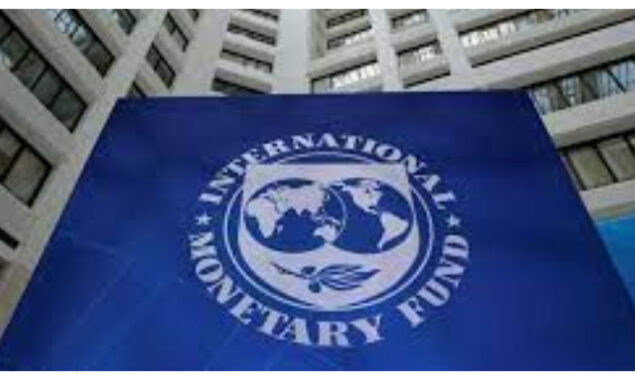World Bank approves US$200 mn aid for Pakistan
The money was given as help to the nation because the World...

Govt faces $4b financing gap despite IMF deal (credits:google)
According to Finance Minister Miftah Ismail on Saturday, Pakistan still has a $4 billion financing deficit that will be filled by selling shares of publicly traded government enterprises to a friendly nation, purchasing oil and gas on a deferred payment basis, and setting up cash deposits.
The finance minister’s comments, which came two days after an agreement with the IMF, lend validity to rumours that friendly countries would only assist Pakistan after the resurrection of the rescue package.
According to the sources, “the lifeline will be removed in case Pakistan slips off the mark.”
Miftah discussed Pakistan’s present economic crisis during a news conference with Minister of Information and Broadcasting Marriyum Aurangzeb.
There is still a $4 billion shortfall that will be closed by the end of this month when compared to the $35.1 billion gross finance demand for the current fiscal year, according to Ismail.
He further stated that a friendly nation would provide Pakistan with oil in exchange for postponed payments totaling $1.2 billion as well as its Special Drawing Rights (SDR), which serve as an additional source of foreign money.
He continued, “Another friendly country will provide gas on a payment schedule, and a third friendly country plans to purchase shares of Pakistani enterprises for $1.5-2 billion.
Last month, The Express Tribune had reported that the United Arab Emirates had declined to offer Pakistan cash in favour of asking to sell shares and one board seat of the companies whose shares they would be purchasing instead.
According to the sources, during his recent trips to the United Arab Emirates, Qatar, and the Kingdom of Saudi Arabia, General Qamar Javed Bajwa, the chief of the army staff, set the stage for the deals to be struck.
The staff level agreement with the IMF, which Islamabad finally overcame on Thursday, was the lone roadblock. According to diplomatic sources, all the nations agreed that Pakistan should first enrol in an IMF programme before receiving any sort of financial help. The goal was to maintain fiscal restraint on the part of the government.
Ismail claimed that a friendly nation might also provide the government a cash deposit. He said, “The nation has promised to surrender its SDRs to the IMF, and against those rights the government can collect $1.5 billion to $2 billion loans.” When asked if such a deal was feasible, the minister responded that the procedure to obtain IMF clearance had already started.
According to the IMF deal, giving SDRs to Pakistan through the IMF will be a part of a larger financial arrangement, which is fairly common, according to Dr. Nademul Haque, a former IMF official.
In addition to providing gas on a deferred payment basis and increasing LNG import cargo from the current three to at least four per month, Pakistan expects Qatar would do so. The foundation for this was laid last month, according to the sources.
Saudi Arabia will increase it to $2.4 billion from its current $1.2 billion annual oil donation on a deferred payment mechanism. The amount of companies Pakistan offers to buy shares from will determine the extent of the UAE investment.
Government-to-government commercial contracts are prohibited under the current privatisation law, so a new law will be passed to allow the transaction with the friendly nation.
The minister believed that the IMF agreement would also make it possible for the Asian Development Bank, the World Bank, and the Asian Infrastructure Investment Bank to make further loans totaling $3.5 billion, $2.5 billion, and $500 million, respectively (AIIB).
The minister responded to a query by stating that the entire primary budget surplus goal remains at Rs153 billion, or 0.2 percent of the GDP. In addition to mentioning the underlying primary surplus target of 0.4 percent, he claimed that the IMF provided a fiscal adjustment of Rs180 billion to settle Independent Power Producers’ debts.
He promised to surpass the IMF-agreed objective of Rs7.470 trillion in tax revenue and to raise an additional Rs855 billion from the petroleum levy in order to meet the total primary budget surplus goal.
The minister dodged questions on raising electricity rates, which the government must do if it wants the IMF board to approve the staff level agreement next month.
According to the minister, the government has petitioned the National Electric Power Regulatory Authority to shield consumers who use up to 100 units per month from a tariff rise of Rs7.91. His reply indicated that the consumers of over 100 units will suffer tariff rise.
Although the government’s calculations put the increase at Rs280 billion, Ismail said that the IMF had projected an increase in circular debt in the electricity sector of Rs850 billion. The IMF sought to reduce the entire circular debt, which is about Rs2.5 trillion, he continued.
Ismail pledged to stop load shedding by the summer of next year. Additionally, he said that only about half of consumers will see their gas prices rise, while the richest individuals will see increases of up to 235%. He said that there are no requirements from the IMF to raise gas prices.
The currency may strengthen next month if the country’s monthly imports drop from their current level of $7.5 billion to $6.5 billion, the minister said in response to a question regarding the rupee’s continued pressure despite the IMF agreement.
The minister added that the government had lowered aviation and rail rates following the decrease in the price of petroleum goods.
Catch all the Business News, Breaking News Event and Latest News Updates on The BOL News
Download The BOL News App to get the Daily News Update & Follow us on Google News.